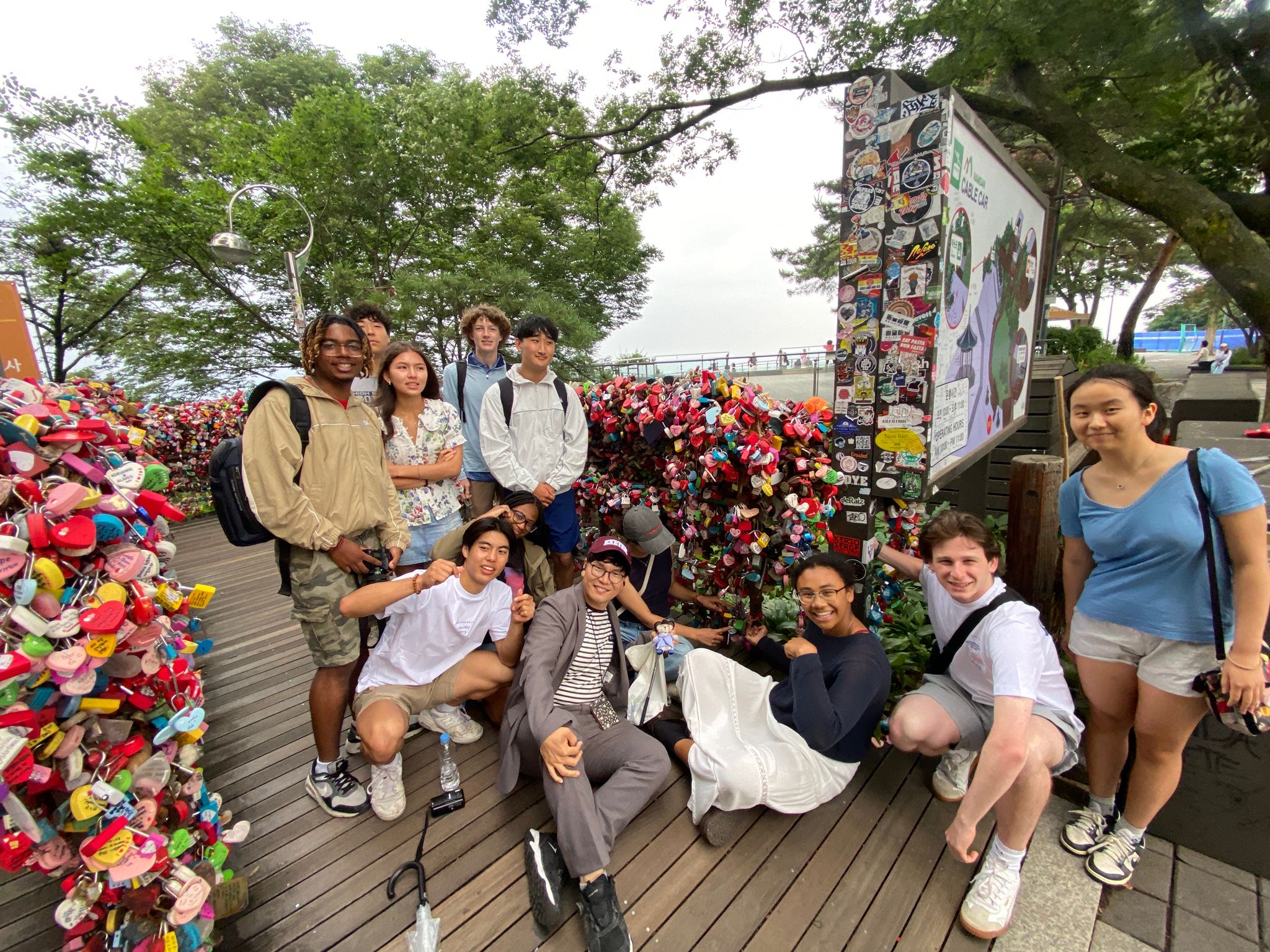Learning by Doing
From Berlin boardrooms to excavation sites at the Sanctuary of Zeus, Exonians and faculty explore the world together.
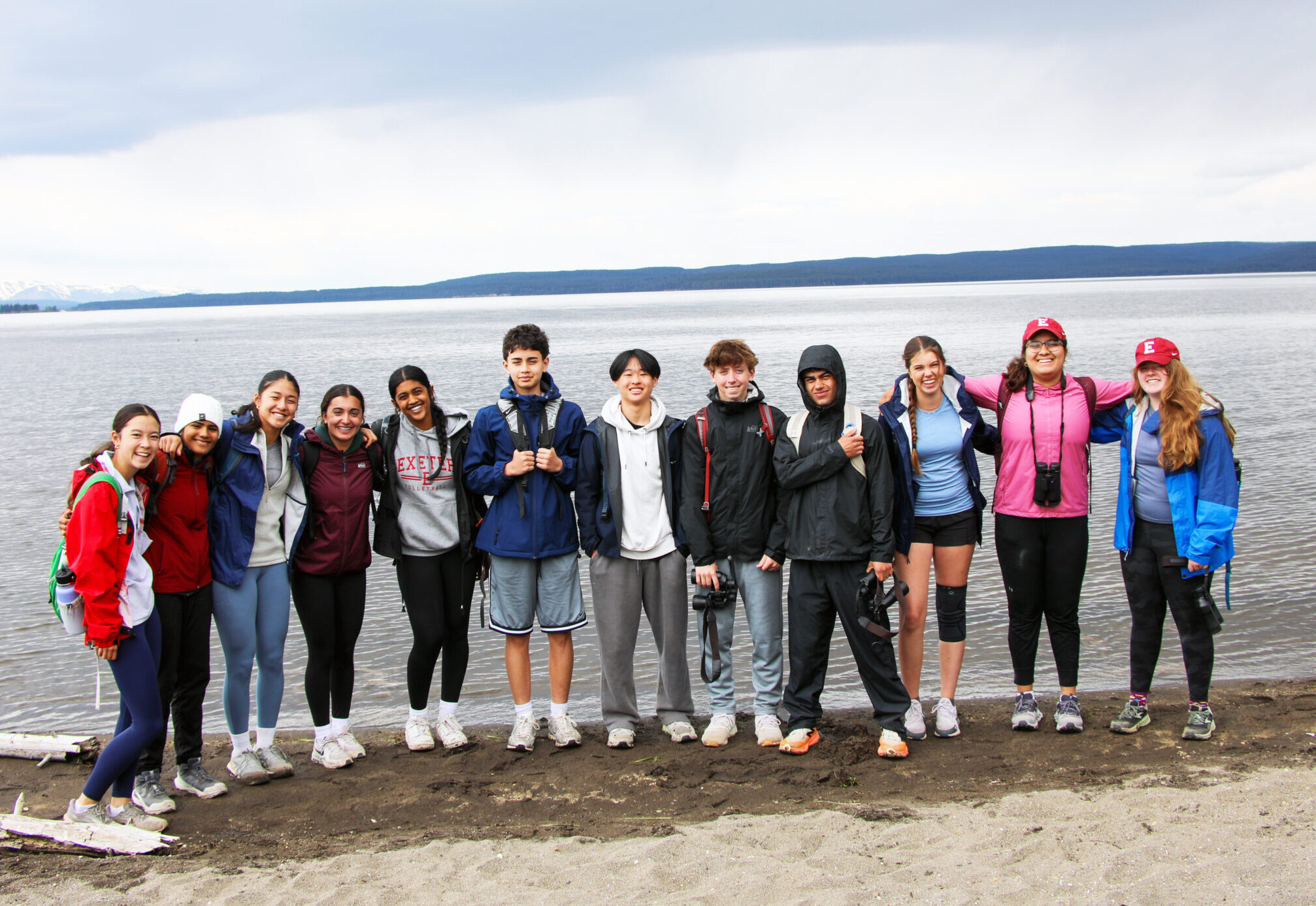 Wyoming
Wyoming
After completing a spring-term special section of BIO230 that approached the curriculum through the lens of the biology in Yellowstone National Park, selected students spent a week on-site this summer. The group made day trips into the park and worked with instructors from Yellowstone Forever Institute to learn about wolf reintroduction, grizzly bear conservation and the bison/brucellosis dynamic. Students also visited thermal features and contributed to a citizen science project to monitor the effects of climate change in the park.
“By learning about niches and resource partitioning, I could understand the habitats of animals in Yellowstone,” Anvi Murka ’28 says. “In-class discussions about pyroclimax communities helped me understand why so many lodgepole pines were in areas affected by fire.”
Taiwan
During a three-week immersion program in Taipei, Taiwan, students developed their Mandarin Chinese skills and understanding of Taiwanese culture through interactive classes, community based activities and host family placements.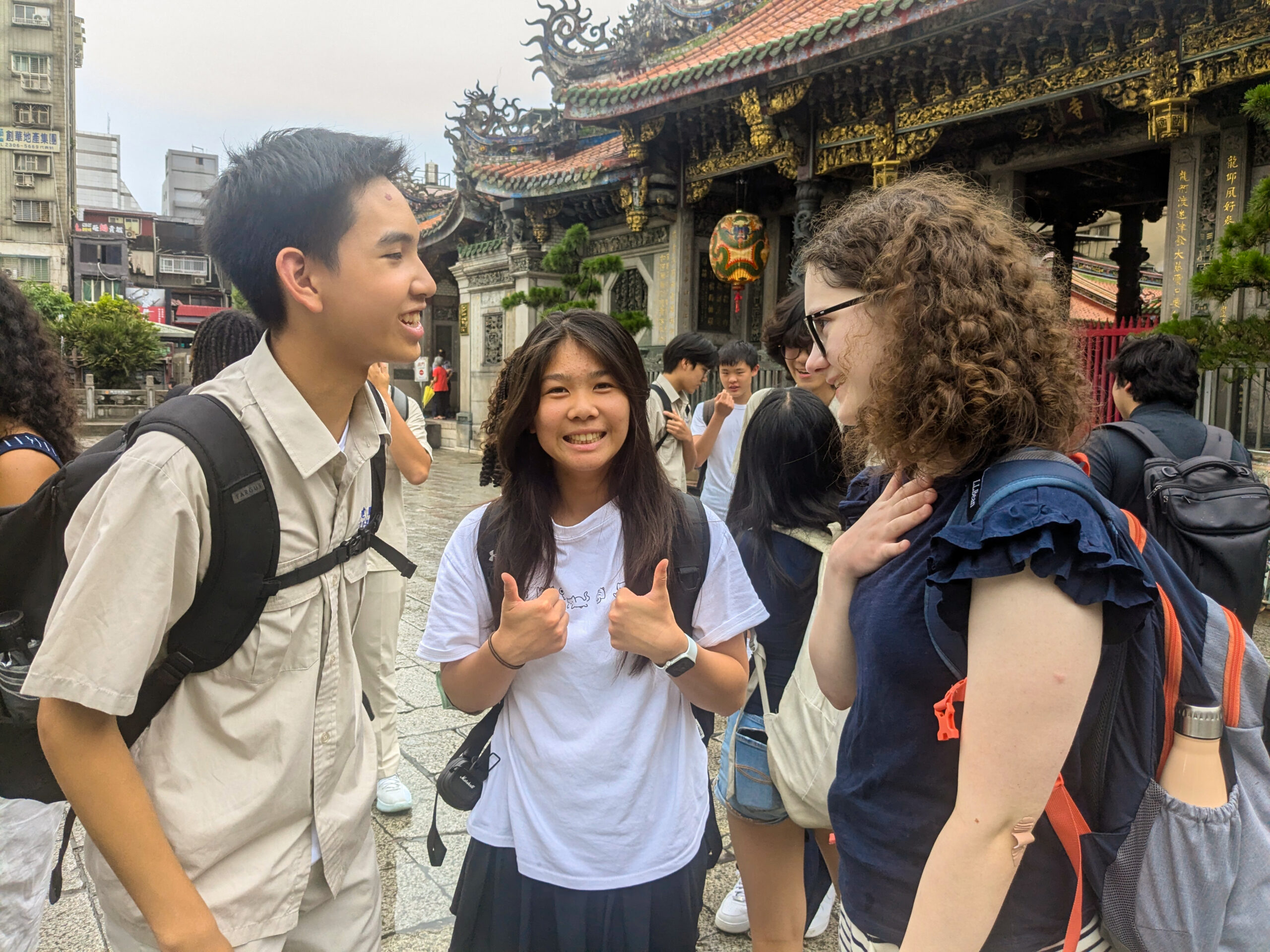
“From learning to fish for shrimp from strangers at a shrimp pond to ordering boba at the night market, I was able to improve my language every day,” Logan Liu ’27 says. “One of my favorite parts of the trip was coming home to eat dinner with my host family. Dinner would end up taking two hours as we talked about Taiwanese politics, high school and culture over a hot bowl of beef noodle soup.”
Ning Zhou, modern languages instructor and faculty chaperone, says, “I am so impressed by students’ rapid growth in their language-learning skills and also glad to see them converse with Taiwanese locals with confidence and curiosity.”
Greece
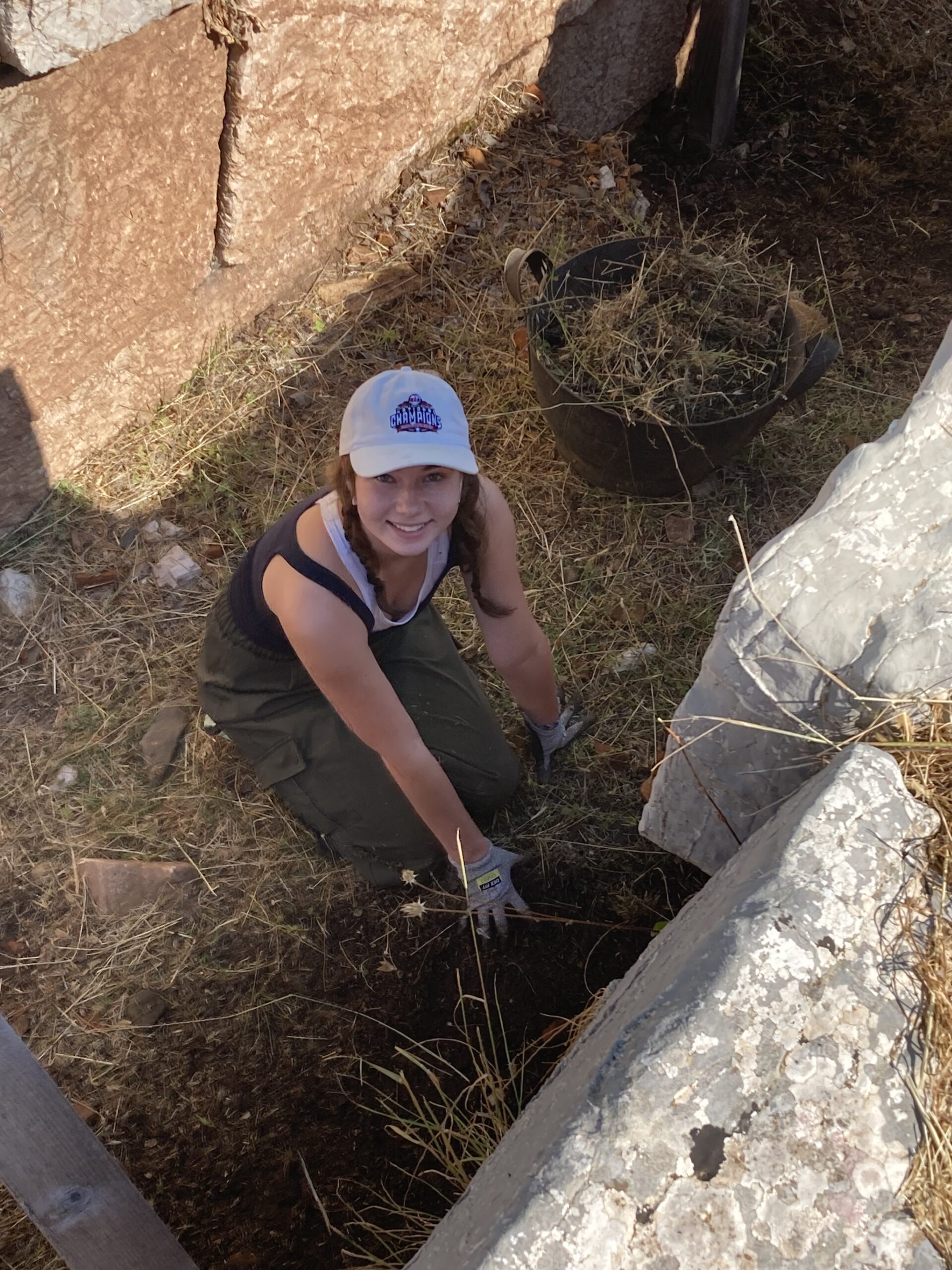 Three Exeter students joined an excavation at the Sanctuary of Zeus and Sanctuary of Pan at Mount Lykaion in Arcadia, Greece, under the auspices of the American School of Classical Studies at Athens. Exeter faculty members Carol Cahalane and Paul Langford joined the students, who spent six weeks with a team from the University of Arizona, directed by David Romano ’65. They worked in the lower mountain meadow, where temples, altars, houses, fountains and a track for running competitions have been identified along with objects of daily life and ritual celebrations.
Three Exeter students joined an excavation at the Sanctuary of Zeus and Sanctuary of Pan at Mount Lykaion in Arcadia, Greece, under the auspices of the American School of Classical Studies at Athens. Exeter faculty members Carol Cahalane and Paul Langford joined the students, who spent six weeks with a team from the University of Arizona, directed by David Romano ’65. They worked in the lower mountain meadow, where temples, altars, houses, fountains and a track for running competitions have been identified along with objects of daily life and ritual celebrations.
South Korea
On a 10-day program, Exonians immersed themselves in South Korea. They explored Korean spirituality during an overnight stay at a Buddhist temple and learned about the fragile peace with North Korea, visiting the Demilitarized Zone and meeting with defectors from the North. “Going to the DMZ made me realize just how heavy the weight of the Korean War was,” Euphoria Yang ’27 says. “Learning about it in history classes, you don’t necessarily feel how hard it was for the soldiers and how complicated this truce agreement was. It also made me realize how much history is still so relevant in the present world today.”
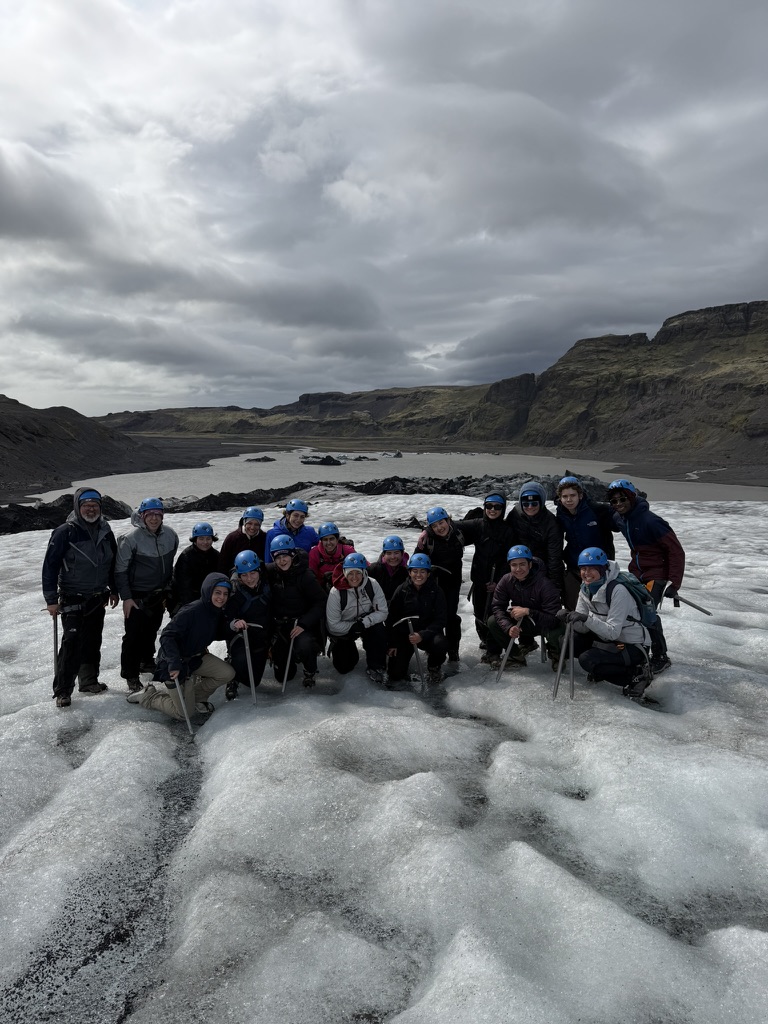 Iceland
Iceland
Exeter travelers to Iceland, in partnership with GeoCamp Iceland, were introduced to the country’s unique and vibrant geology. The group visited some of the youngest landmass on Earth, observed the effect of a warmer climate on the island’s glaciers, learned about natural hazards in Westman Islands, listened to sagas that inspired Tolkien and the Marvel movies, and experienced culture and museums in Reykjavik.
Levi Stoll ’28 says the trip was “my first time outside of America, and the journey affected me more than I thought it would.” Stoll added: “The awe-inspiring landscape, the rich and layered culture, the close-knit community and the delicious food all added up to an exquisite trip.”
Principal Bill Rawson ’71, who was a chaperone, says: “It was a very special experience exploring a new country with 15 curious Exonians. We were all learners every step of the way. And for me, it was quite special observing firsthand the impact our global studies programs have on our students.”
Berlin
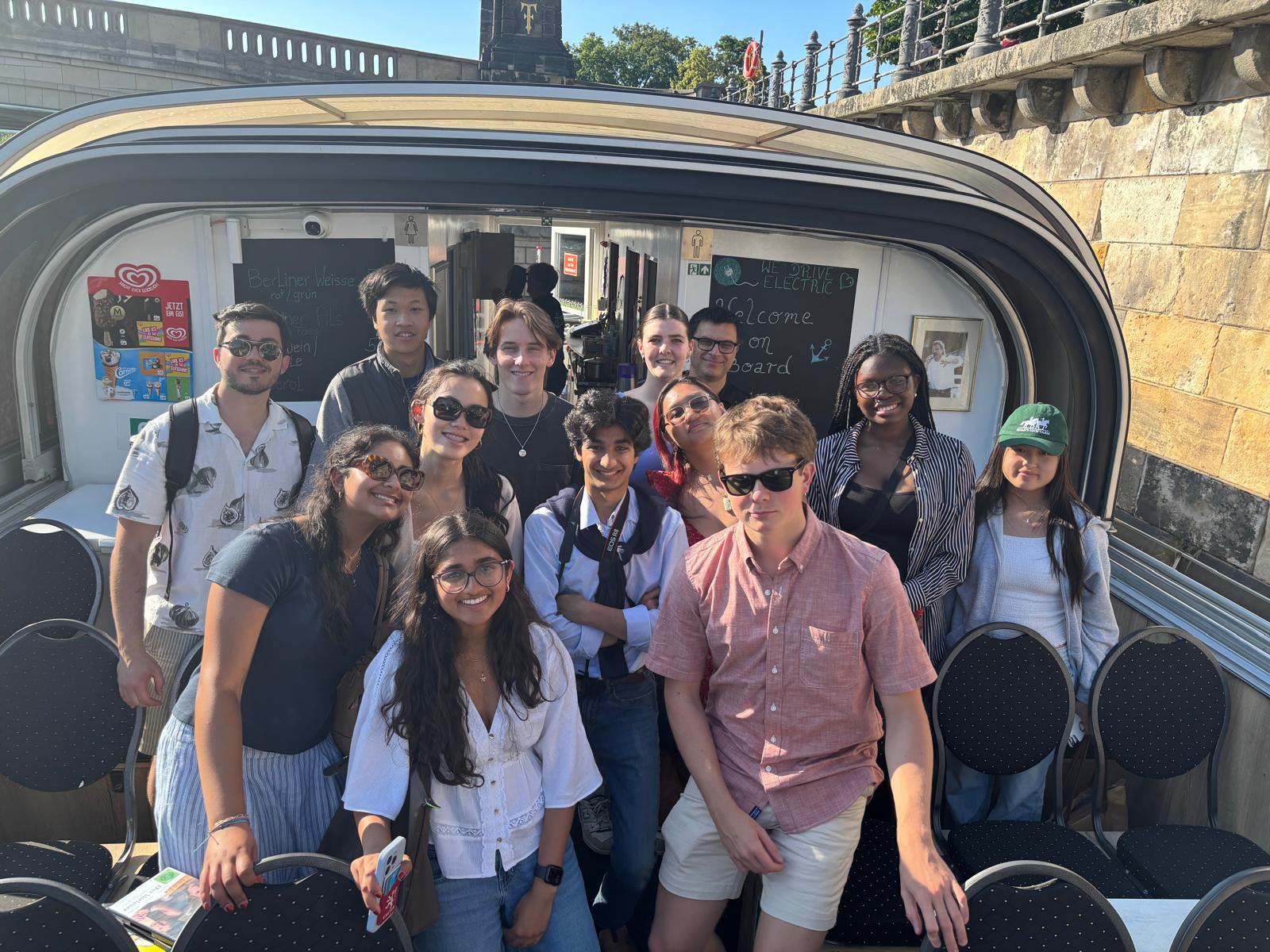
ECO502: Principles of Economics and Business, traditionally offered at Exeter in spring term, was redesigned as an intensive place-based and experiential learning trip to Berlin that qualifies for academic credit. During the program, students dived into macro- and microeconomic concepts and the role that the government plays in the country’s economy. Homework assignments covered Germany’s economic history, immigration and environmental policies, and its role in the European Union. Exonians also studied fundamentals of business structure and operation, and the roles of consumer and investor.
“The program allowed us to learn about principles of economics in a classroom setting while also being able to apply our knowledge to the vibrant city of Berlin,” Ally Rubin ’26 says. “Our group visited places that have only furthered my interest in the field of economics, whether that was the BMW factory or talking with members of the German Parliament.”
Colorado
For one week in mid-July, students learned from host Richard Chuchla ’74 about the mountain-building events that created Colorado’s current landscapes starting almost 2 billion years ago and continuing to the present.
By driving, hiking and rafting through the Rocky Mountains, Exonians came to understand how geologic history is unraveled through careful observation. Key topics discussed were how continental collisions grew mountains and created volcanic events that formed large ore deposits and geothermal systems that we are exploiting for energy today; how mining of these ore deposits has enhanced our lives but has created environmental problems; how relatively recent glaciation has sculpted the Rockies into their current craggy form; and how glacial retreat is a bellwether of climate change.
This article was originally published in the fall 2025 edition of The Exeter Bulletin.
